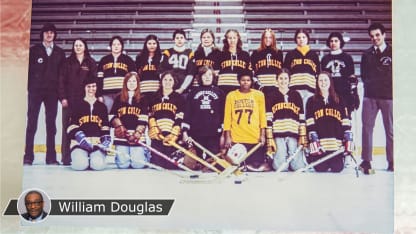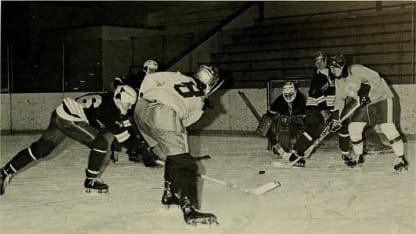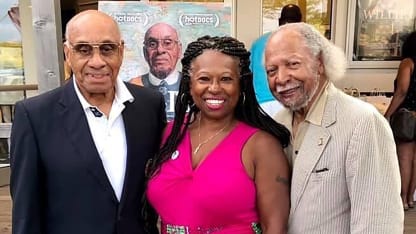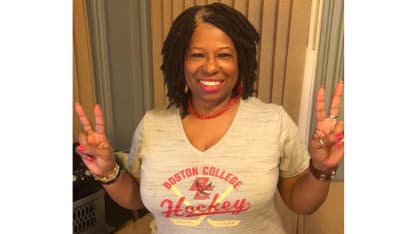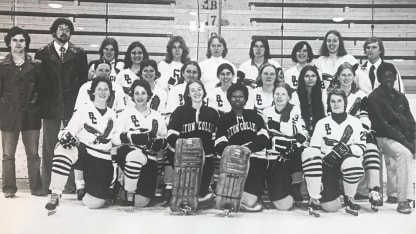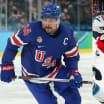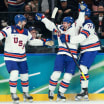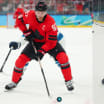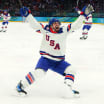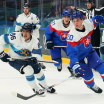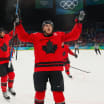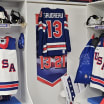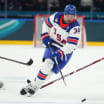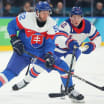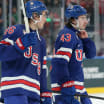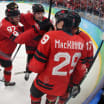BC's inaugural women's hockey team was formed by students a year after Title IX, which prohibits discrimination based on sex in educational programs or activities that receive federal assistance, came into law. The law celebrates its 50th anniversary this year.
Even with Title IX, BC's first women's team faced challenges, especially when it came to finding players. Some women had hockey experience, others didn't. Some knew how to skate, but only on figure skates.
Then there was McCoy, who grew up in Washington, D.C.. She said she never saw an ice hockey game before attending college. But that didn't deter Kelley from recruiting her, figuring her field hockey goaltending skills would translate to ice.
"It seemed kind of crazy, in the sense that, yeah, I was a Black girl out there -- I'm not sure whether I was the only Black girl on field hockey, but I know I was the only Black girl out there for ice hockey," said McCoy, who is the public information officer for the Office of the People's Counsel of the District of Columbia, an independent government agency. "But 'Snooks' asked me to play.
"He said they would teach me, and I ended up getting my own goaltending coach, they taught me how to skate and, as they say, the rest is history."
